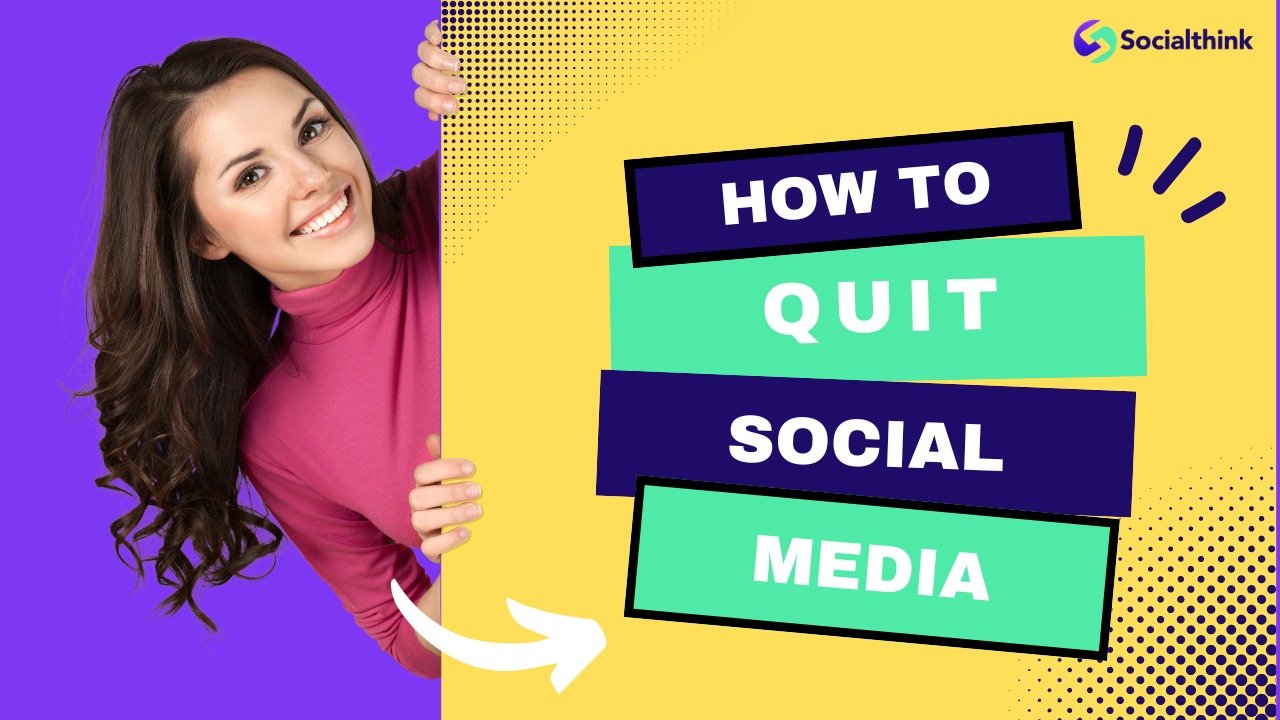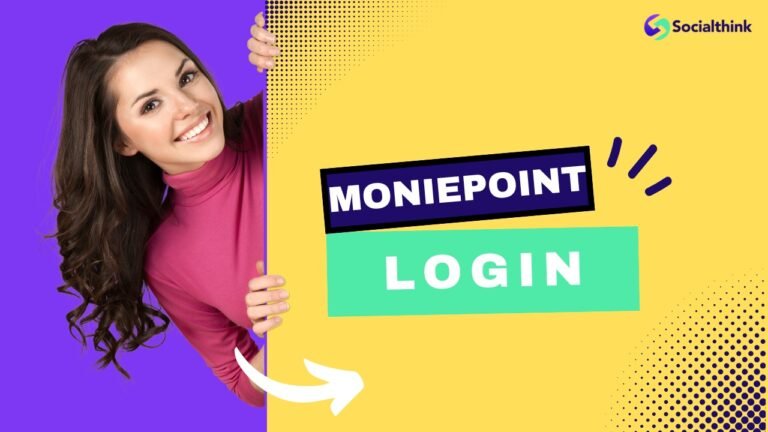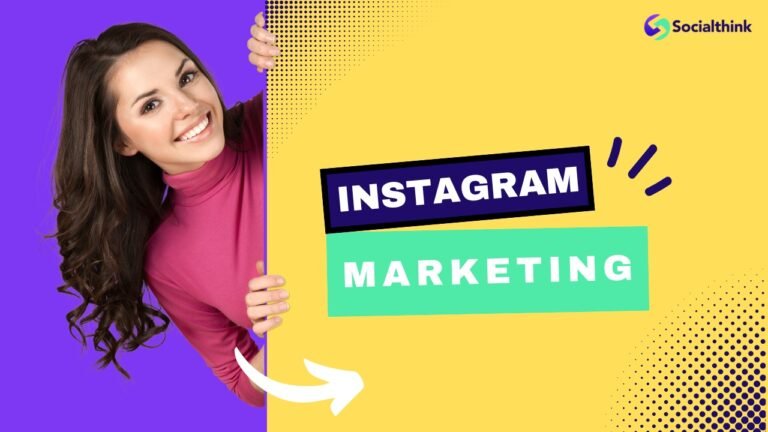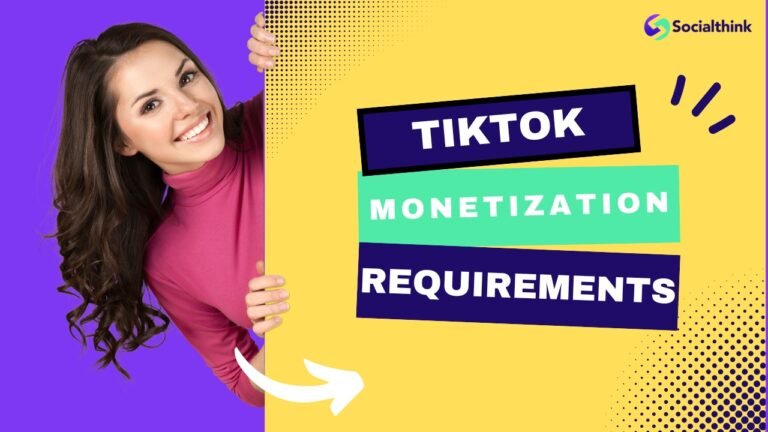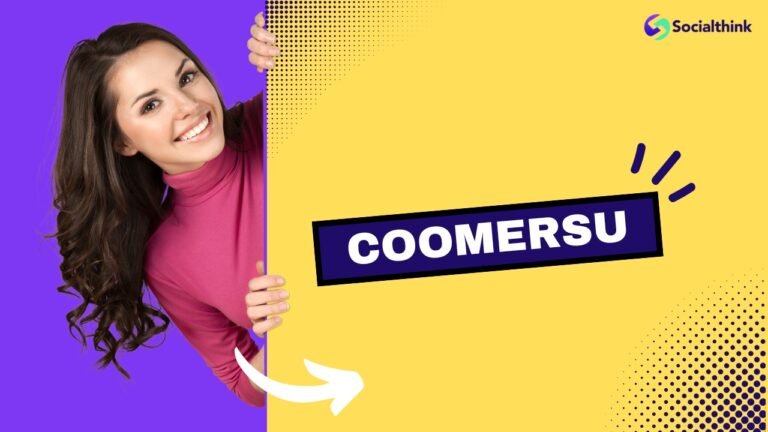How to Quit Social Media: Step-by-Step Guide to Digital Detox
In today’s hyperconnected world, social media has become an integral part of our daily lives.
From staying in touch with friends and family to consuming news and entertainment, platforms like Facebook, Instagram, and Twitter have revolutionized the way we interact and engage online.
However, as social media usage continues to rise, so do concerns about its impact on our mental health, productivity, and overall well-being.
At Social Think, we specialize in providing actionable social media insights and strategies to help businesses thrive in the digital landscape. But we also recognize the importance of maintaining a healthy relationship with social media on a personal level.
In this comprehensive guide, we’ll explore the reasons why you might consider quitting social media and provide a step-by-step approach to help you navigate the process of digital detox.
Do We Need to Get Rid of Social Media?
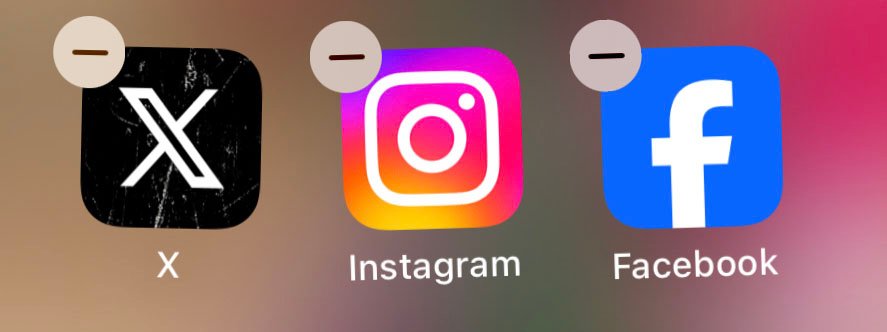
Before we dive into the specifics of how to quit social media, let’s address a fundamental question: do we really need to get rid of social media altogether? The answer is not a simple yes or no. While social media can offer numerous benefits, such as staying connected with loved ones and accessing valuable information, it’s essential to be aware of its potential drawbacks and to use it mindfully.
Why You Should Consider Quitting Social Media?
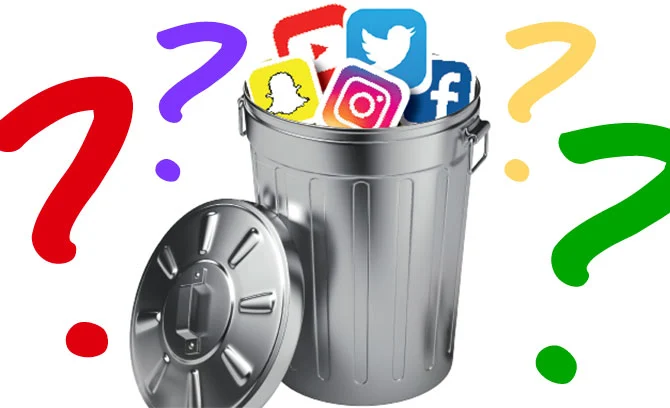
Excessive social media use can hurt our mental health. It can make us feel inadequate and lead us to compare ourselves to others. Seeing the perfect lives of others can harm our self-esteem and leave us unhappy with our own lives. Also, social media addiction can take away hours from our day. This leaves us with less time for good moments with family and friends, as well as doing things we love.
Giving up social media can help us break this bad cycle while doing better things in your free time. It can let us focus on our mental well-being. We can build real connections, explore our interests, and enjoy the moment we are in.
The Negative Effects of Social Media
Studies have shown that excessive social media use can lead to a range of negative effects on our mental health and well-being.
These include:
- Increased feelings of anxiety, depression, and loneliness
- Decreased self-esteem and body image issues
- Disrupted sleep patterns and poor sleep quality
- Reduced attention span and productivity
FOMO and Social Media Addiction
One of the most significant challenges associated with social media is the fear of missing out (FOMO). This phenomenon refers to the anxiety or apprehension that arises when we believe we’re missing out on exciting experiences or important information shared by others online. FOMO can fuel compulsive checking of social media feeds, leading to addiction-like behaviors and a constant need for validation.
Reclaiming Your Time and Focus
Quitting social media allows you to recapture a considerable amount of time and mental energy that you may have been dedicating to scrolling through feeds and interacting with content. This newfound time can be redirected towards more meaningful activities, such as pursuing hobbies, spending quality time with loved ones, or focusing on personal growth and development.
What Social Media Do to Our Brains?
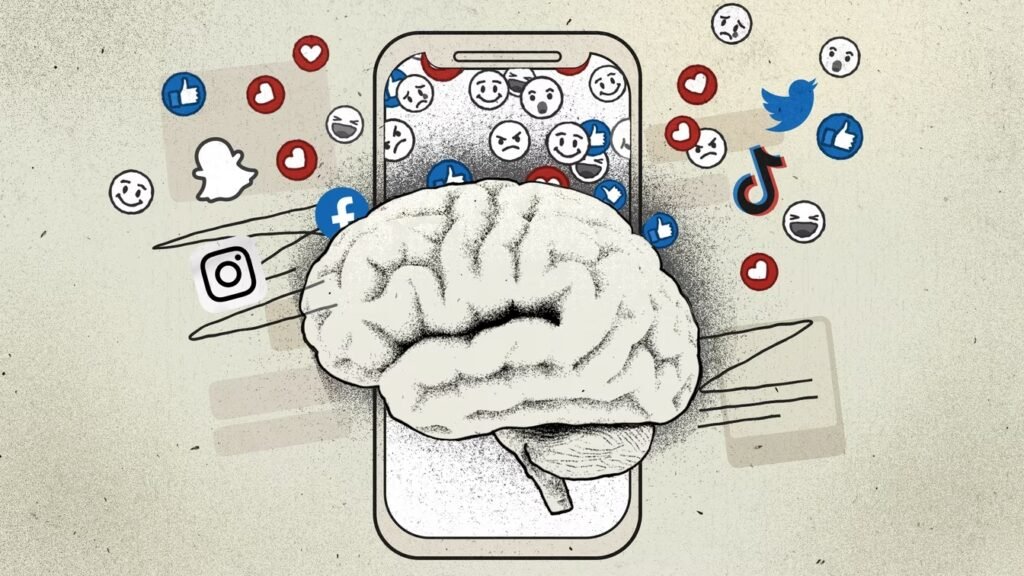
Research has shown that social media use can have a profound impact on our brains. The constant stream of notifications, likes, and comments activates the brain’s reward center, releasing dopamine and creating a sense of pleasure and satisfaction. Over time, this can lead to a cycle of craving and compulsive behavior, similar to addiction.
Moreover, the information overload and constant multitasking associated with social media can negatively affect our attention span, memory, and cognitive function. Taking a break from social media allows your brain to reset and recuperate from continuous stimulation.
How Do You Know If You’re Using Social Media Too Much?
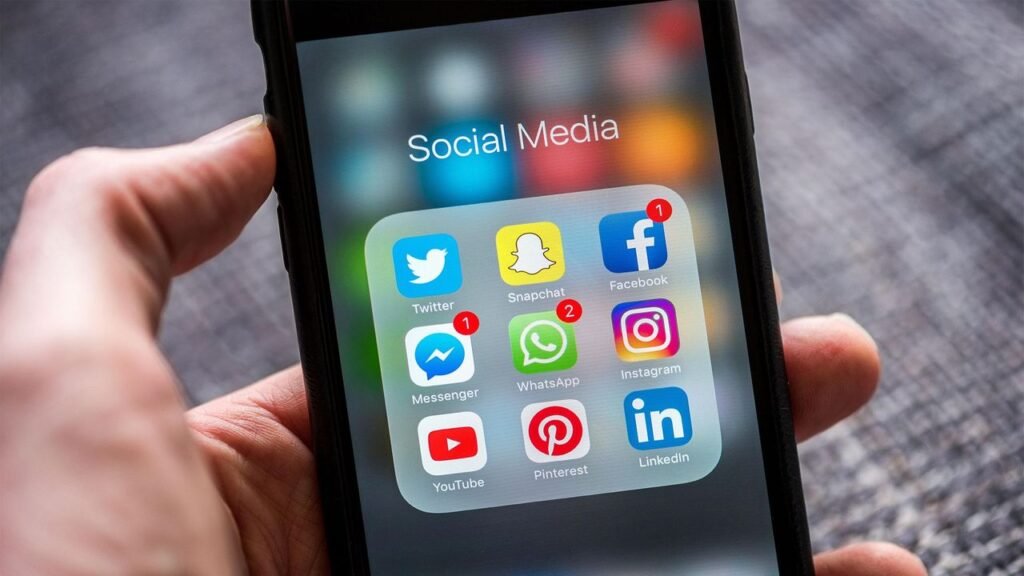
If you’re wondering whether your social media usage has become excessive, here are some signs to watch out for:
- Checking your social media feeds is the first thing you do when you wake up and the last thing you do before going to bed
- You find yourself mindlessly scrolling through your feeds for long periods, losing track of time
- You experience feelings of anxiety, irritability, or restlessness when you can’t access social media
- Your social media use interferes with work, school, or personal relationships
- You compare yourself negatively to others on social media, leading to feelings of inadequacy or low self-esteem
If you identify with any of these signs, it may be time to consider taking a break from social media or implementing strategies to reduce your usage.
How to Quit Social Media?
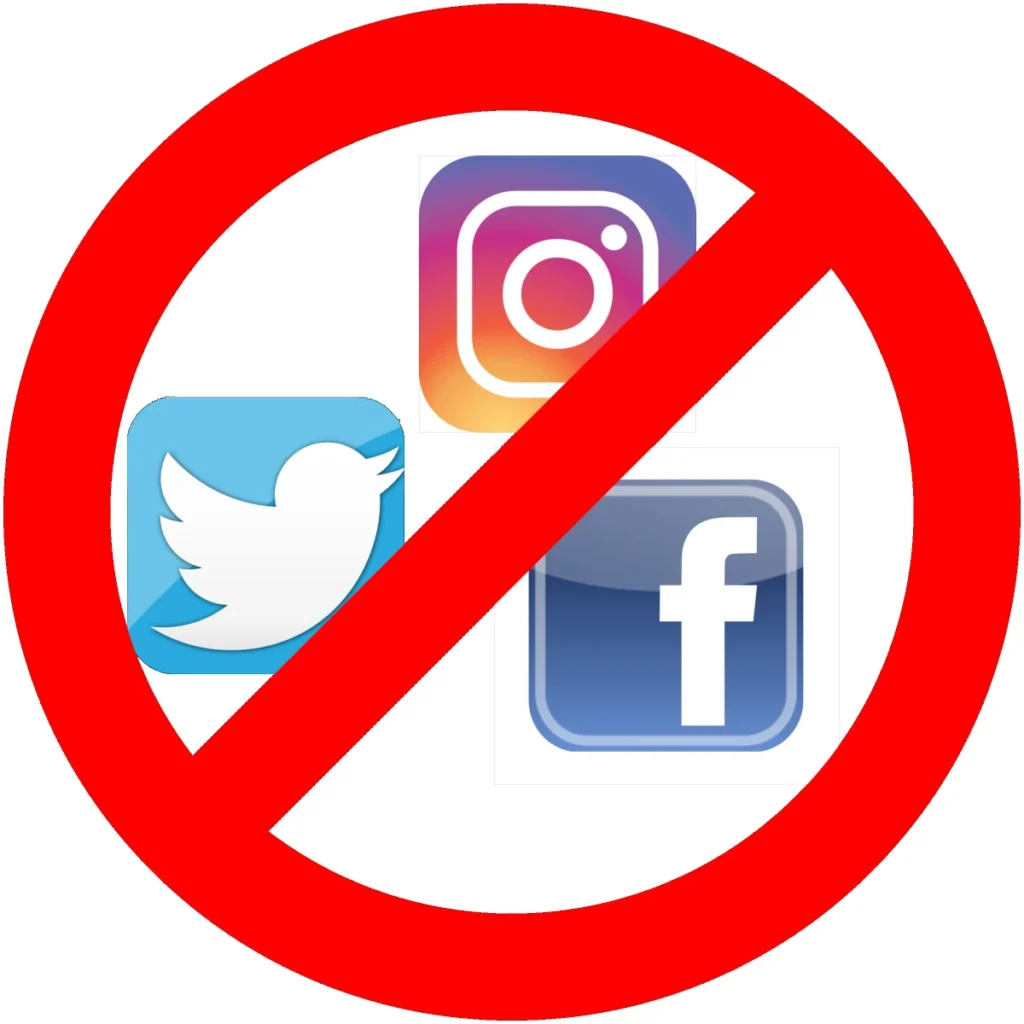
- Step 1: Assess Your Social Media Usage: The first step in quitting social media is to take an honest look at your current usage patterns. Track how much time you spend on each platform, what triggers your usage, and how it makes you feel. This self-awareness will help you identify areas where you can make changes and set realistic goals for your digital detox.
- Step 2: Set Your Intentions and Goals: Before embarking on your social media detox, clarify your intentions and goals. What do you hope to achieve by quitting social media? Is it to improve your mental health, increase productivity, or spend more time on meaningful activities? Having a clear purpose will help you stay motivated and focused throughout the process.
- Step 3: Announce Your Break or Departure: If you feel comfortable, let your friends and followers know that you’ll be taking a break from social media. This can help manage expectations and reduce the temptation to check in on what others are doing. You can also set up an auto-reply message for direct messages, informing people that you’re on a social media hiatus.
- Step 4: Remove Apps and Block Websites: To minimize the temptation to check social media, remove the apps from your phone and tablet. If you need to access social media for work or other essential purposes, consider using website blockers or time-limiting tools to restrict your usage during designated hours.
- Step 5: Find Alternative Activities: To fill the void left by social media, explore alternative activities that bring you joy and fulfillment. This could include reading, exercising, learning a new skill, or spending time in nature. Engaging in activities that nurture your mind and body can reduce the urge to seek constant social media stimulation.
- Step 6: Manage Withdrawal Symptoms: As with any addiction, quitting social media can lead to withdrawal symptoms such as feelings of anxiety, restlessness, or a strong urge to check your feeds. Be prepared for these challenges and have a plan in place to manage them. This could include practicing mindfulness, reaching out to supportive friends or family members, or engaging in stress-reducing activities like meditation or deep breathing exercises.
- Step 7: Reflect on Your Experience: Throughout your social media detox, take time to reflect on your experience. Notice how you feel without the constant presence of social media in your life. Are you more present, productive, or content? Use these insights to inform your future relationship with social media and make conscious choices about how you engage with these platforms moving forward.
How To Quit Social Media Without Harming Your Business?
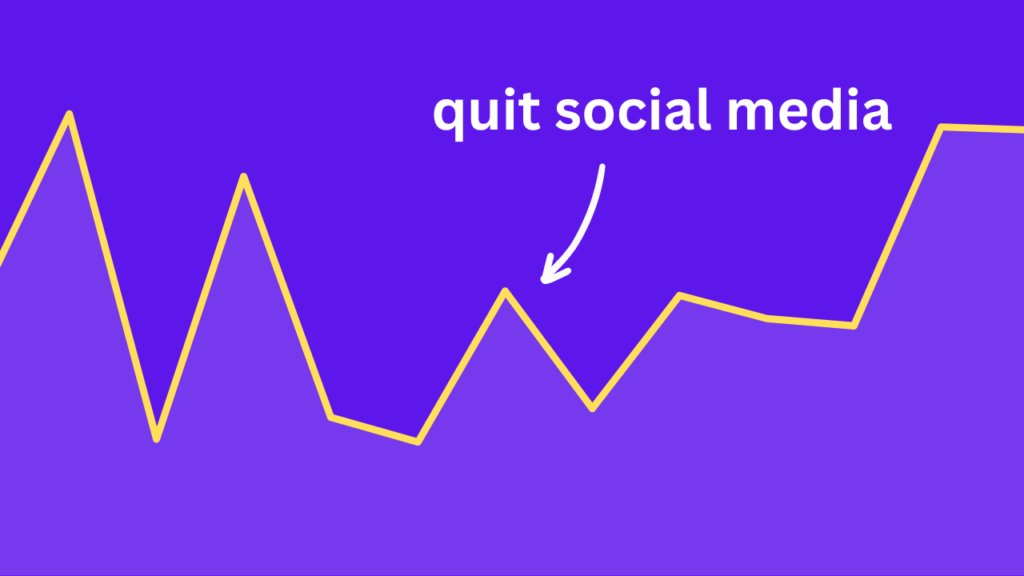
For many businesses, social media is an essential tool for marketing, customer engagement, and brand building. If you rely on social media for work, quitting altogether may not be a viable option. However, there are strategies you can implement to maintain a healthy balance:
- Designate specific times for social media management and stick to those boundaries
- Use social media management tools to schedule posts in advance, reducing the need for constant monitoring
- Delegate social media responsibilities to team members or consider outsourcing to a social media agency
- Focus on quality over quantity when it comes to content creation and engagement
Being deliberate in how you use social media for business can reduce its harmful effects on your well-being while maximizing its advantages for your brand.
How to Detox Without Deleting Your Social Accounts?

If you’re not ready to quit social media entirely, you can still benefit from a digital detox without deleting your accounts.
Here are some strategies to consider:
Prioritize Other Activities, Hobbies, and Passions
Make a conscious effort to engage in activities that bring you joy and fulfillment outside of social media. Whether it’s reading a book, going for a hike, or learning a new skill, prioritizing these experiences can help reduce your reliance on social media for entertainment and validation.
Turn Off Mobile Notifications
One of the most effective ways to reduce the pull of social media is to turn off notifications on your phone. By eliminating the constant pings and alerts, you’ll be less tempted to check your feeds compulsively throughout the day. Instead, set designated times to check your accounts and stick to those boundaries.
Life After Quitting Social Media

Life after you quit social media is a chance to find yourself again. You can discover your passions and enjoy the beauty around you. You will pay more attention in conversations and notice little things you missed before. You will also appreciate the simple joys in life.
This is a great chance to build strong relationships. You can chase your interests with energy. Live a life that shows what you care about and what you hope to achieve. You might be amazed by the freedom, clarity, and happiness that comes your way.
Reconnecting With The Real World
Quitting social media can open up opportunities to reconnect with the real world and the people around you. Instead of scrolling through feeds, you can engage in face-to-face conversations, attend social events, and cultivate deeper, more meaningful relationships. This shift towards in-person interaction can foster a greater sense of connection and belonging.
Pursuing Hobbies and Interests
Without the constant distraction of social media, you may find yourself with more time and mental energy to pursue hobbies and interests that you’ve been neglecting. Whether it’s learning a musical instrument, taking up a new sport, or exploring your creative passions, engaging in activities that bring you joy and fulfillment can contribute to a greater sense of purpose and well-being.
Improved Mental Health and Well-being
Many people who quit social media report improvements in their mental health and overall well-being. By reducing exposure to the negativity, comparison, and information overload often associated with social media, you create space for more positive thoughts and experiences. This can lead to reduced stress, increased self-esteem, and a greater sense of contentment and happiness.
What If I Relapse and Start Using Social Media Again?
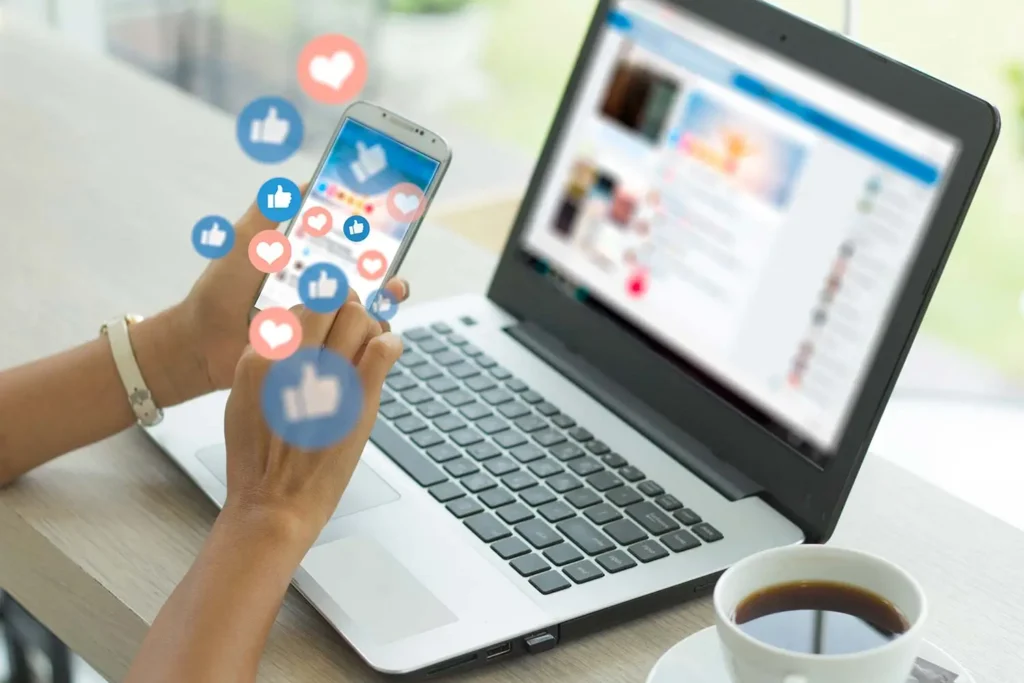
If you find yourself slipping back into old social media habits after quitting, don’t be too hard on yourself. Quitting social media is a process, and it’s common to experience setbacks along the way. The key is to recognize when you’ve relapsed and to take steps to get back on track.
Reflect on what triggered your relapse and consider what you can do differently next time. Perhaps you need to set clearer boundaries, find alternative ways to cope with stress or boredom, or seek support from friends or a therapist.
Remember that progress is not always linear, and each setback is an opportunity to learn and grow.
FAQ’s:
Is it Worth it to Quit Social Media?
The decision to quit social media is a personal one that depends on your circumstances and goals.
For many people, taking a break from social media can lead to improved mental health, increased productivity, and a greater sense of connection to the real world.
However, it’s important to weigh the potential benefits against any drawbacks, such as losing touch with distant friends or missing out on important information.
What if I Need Social Media For Work?
If you rely on social media for work, it may not be realistic to quit entirely. However, you can still implement strategies to minimize its negative impact on your well-being. Set clear boundaries between work and personal use, limit your time on social media outside of work hours, and be intentional about the content you consume and engage with.
How Long Should I Quit Social Media For?
The length of your social media detox will depend on your individual goals and needs. Some people find that a short break of a few days or weeks is sufficient to reset their habits and gain perspective. Others may benefit from a longer hiatus of several months or even a year. Experiment with different time frames and pay attention to how you feel throughout the process.
How Do I Deal With FOMO After Quitting Social Media?
FOMO, or the fear of missing out, is a common challenge when quitting social media.
To cope with these feelings, remind yourself of the reasons why you decided to quit in the first place. Focus on the benefits you’re experiencing, such as increased productivity, improved mental health, and more meaningful connections with others. Engage in activities that bring you joy and fulfillment, and cultivate a sense of presence and contentment in your daily life.
Will Quitting Social Media Hurt My Relationships?
While quitting social media may change the way you interact with some friends and acquaintances, it doesn’t have to hurt your relationships. Many people find that stepping away from social media allows them to cultivate deeper, more authentic connections with others. Make an effort to stay in touch with important people in your life through other means, such as phone calls, text messages, or in-person meetings.
Can I Still Use Messaging Apps to Stay in Touch?
Yes, you can still use messaging apps like WhatsApp, Facebook Messenger, or iMessage to stay in touch with friends and family while quitting social media. The key is to be intentional about your usage and to set boundaries around when and how you engage with these apps. Avoid getting drawn into endless scrolling or unproductive conversations, and prioritize meaningful interactions that add value to your relationships.
Conclusion
Quitting social media may pose a challenge, but it can also be a rewarding endeavor. Stepping away from the constant buzz of these platforms allows for increased self-awareness, productivity, and well-being. The aim is not necessarily to abandon social media entirely, but to cultivate a healthier, more deliberate relationship with these tools.
At Social Think, we acknowledge the potential of social media while emphasizing the importance of mindful usage. Our goal is to provide practical insights and strategies to assist individuals and businesses in effectively leveraging digital platforms to align with their objectives and principles.
If you are contemplating giving up social media, remember that many individuals worldwide are facing similar struggles and striving for a more balanced digital lifestyle. By using this guide and sticking to your goals, you can complete a digital detox successfully. This will give you a fresh purpose and better relationships.
Remember, quitting social media is not about perfection, but progress. Be patient with yourself, celebrate your successes, and learn from your setbacks. And if you need support along the way, don’t hesitate to reach out to friends, family, or professionals who can offer guidance and encouragement.
At Social Think, we’re here to help you make the most of your social media experience, whether that means optimizing your strategy for business success or finding a healthy balance for your well-being. We take care of all your social needs, so your business does not get hampered.
Visit our website to learn more about our services and insights, and take the first step towards a more intentional, fulfilling digital life.

